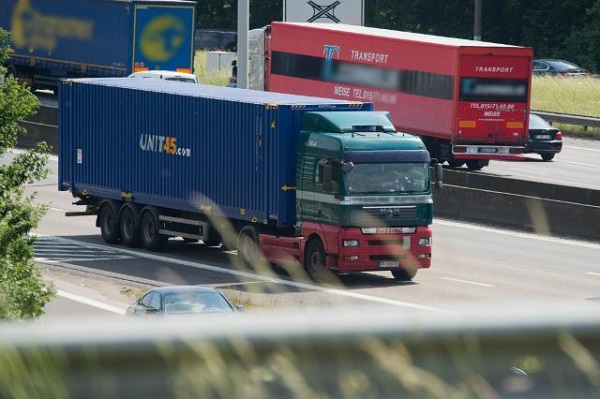
 The EU Commission has today issued new practical advice on how to implement its Guidelines for border management, in order to keep freight moving across the EU during the current coronavirus pandemic. To ensure that EU-wide supply chains continue to operate, Member States are requested to designate, without delay, all the relevant internal border-crossing points on the trans-European transport network (TEN-T) as ‘green lane' border crossings. The green lane border crossings should be open to all freight vehicles, whatever goods they are carrying. Crossing the border, including any checks and health screening, should not take more than 15 minutes.
The EU Commission has today issued new practical advice on how to implement its Guidelines for border management, in order to keep freight moving across the EU during the current coronavirus pandemic. To ensure that EU-wide supply chains continue to operate, Member States are requested to designate, without delay, all the relevant internal border-crossing points on the trans-European transport network (TEN-T) as ‘green lane' border crossings. The green lane border crossings should be open to all freight vehicles, whatever goods they are carrying. Crossing the border, including any checks and health screening, should not take more than 15 minutes.
Commissioner for Transport Adina Vălean said: “The EU's transport network connects the whole of the EU. Our guidance document is intended to protect the EU's supply chains in these difficult circumstances, and to make sure both goods and transport workers are able to travel to wherever they are needed – without delay. A collective and coordinated approach to cross-border transport is more important today than ever before. The green lanes are also specifically designed to protect transport workers at the frontline of this crisis. This set of recommendations will ease their already stressful mission and it will bring more safety and predictability to their work.”
Green lane border crossings

Enhanced cooperation among EU Member States and beyond
Following the video-conference between EU Transport Ministers on 18 March, the Commission set up a network of national contact points and a platform to provide information on national transport measures taken by Member States in response to the coronavirus. The national contact points should support the effective functioning of the green lane border crossing points. Neighbouring non-EU countries are invited to work closely with this network to ensure the flow of goods in all directions.
Application of rules for transport workers
To keep transport moving, the Commission recommends that Member States take action to ensure the free movement of all workers involved in international transport, whatever the transport mode. In particular, rules such as travel restrictions, and mandatory quarantine of transport workers not displaying symptoms, should be waived. For example, Member States should not require that transport workers carry a doctor's certificate to prove their good health. To ensure the safety of transport workers, enhanced hygiene and operational measures are also needed in airports, ports, railway stations and other land transport hubs. Today's note from the Commission includes a full list of recommendations to protect drivers from the coronavirus (Annex 2).
Internationally recognised certificates of professional competence should be considered sufficient to prove that a worker is active in international transport. In the absence of such certificates (not all international drivers have one), a letter signed by the employer (Annex 3) should be accepted.
All of these principles should also apply to third country nationals if they are essential to ensuring that cargo moves freely within and into the EU.
The full guidance document from the Commission is available via this link.
Coronavirus section on IIFA website
IIFA has dedicated a section of its website to Freight Industry relevant Coronavirus updates. This information can be found via the link below: